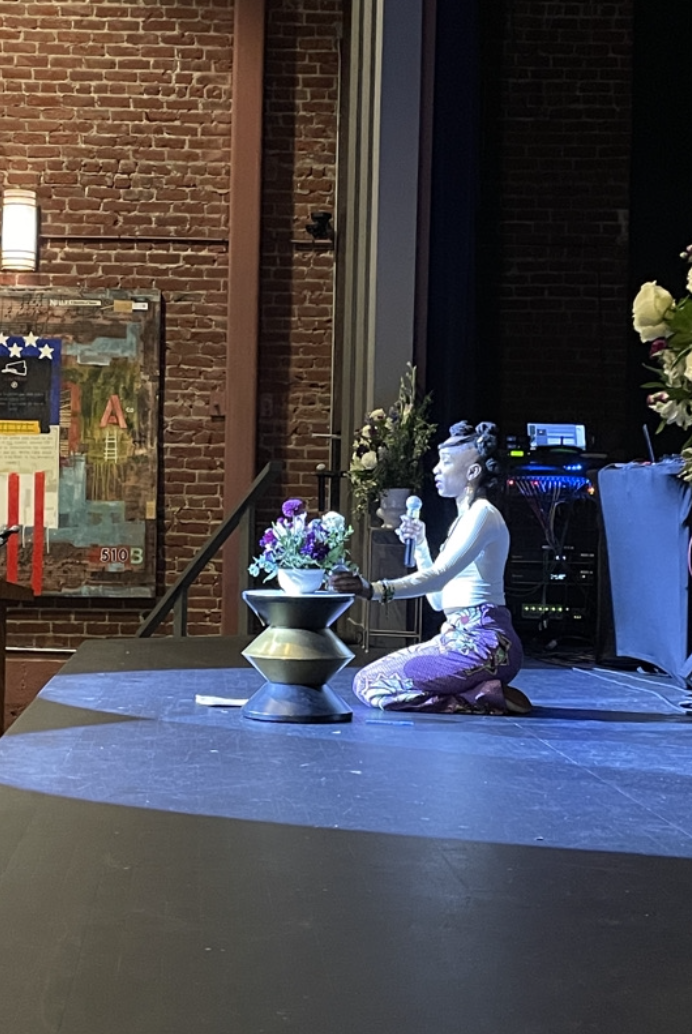Gen-Z Speaks Wellness
This community capacity-building initiative promotes mental health and wellness among Black young adults 17-25 through culturally infused mental health convenings, workshops, and safe spaces. The aim is not only to create supportive environments but to improve five critical measures of mental and emotional wellness that serve as barriers against the negative impacts of adverse experiences associated with the following:
- Increased identification of mental health symptoms and risk factors that lead to severe mental health disparities exacerbated by school failure and drop-out
- Prevention of early onset and reduction of mental health illness severity associated with prolonged suffering for transition and Black young adults 17-25
- Reduced mental health stigma
- Increased access and utilization of mental health services and care, primarily to address POST-COVID STRESS DISORDER (prolonged anxiety, fear, repressed grief)
- Reduction in social isolation and pressure among young Black youth in college settings that contributes to declining health and harmful behavior
If you identify as a Black young adult, 17-25 years old, in the Sacramento area, we are looking to connect with you! Sign up to stay up-to-date on the upcoming Gen-Z Speaks Wellness events and workshops.
We are currently seeking to partner with organizations to help provide one or more of the following:
If you are interested in becoming a collaborative partner contact mentalhealth[at]cabwhp.org
- Outreach/promotion of the Sacramento Engagement Project Gen-Z Speaks Wellness
- Activity/Engagement Partnership
- Guest speaking/co-facilitation at an activity or an engagement
- Thought partnership to best implement the Sacramento Engagement Gen-Z Speaks Wellness in the Sacramento region
- Volunteer recruitment
If you are interested in becoming a collaborative partner contact mentalhealth[at]cabwhp.org
Sisters Mentally Mobilized Sacramento Engagement Project
ACTIVITES
In 2020, we set out to leverage statewide, countywide, and local partnerships, networks, and coalitions targeting Black women to enable us to reach out to Black women and provide mental, physical, and community health education, empowerment, and support resources. Our Sisters Mentally Mobilized Sacramento Engagement Project interventions employed multiple strategies: training and education providing mental health literacy and awareness, community to combat isolation and give peer support, advocacy for public interest and policy change, and collective impact through collaboration with other community organizations. Our engagement model is a community-defined evidence practice infused with culture and cultural elements as tools for healing Black women and girls. Outreach and education efforts included digital communication, social media, hosted events, trainings, radio, town- halls, community forums, and more. Our nationally recognized evidenced-based Sister Circle engagement model is the primary community outreach and community capacity- building tool used by CABWHP.
TOTAL SERVED
Over the 2-year project term, we achieved improvements in critical measures of mental and emotional wellness that act as barriers to the harmful effects and adverse experiences associated with the following:
•Increased identification of mental health symptoms and risk factors that lead to or are exacerbated by unemployment and incarceration
•Prevention of early onset and reduction of mental health illness severity associated with prolonged suffering for Black women and girls
•Reduced mental health stigma
•Increased access and utilization of mental health services and care
•Reduction in social isolation among older Black women that contributes to declining health and potential removal of our aging Sisters from their homes
•Increased identification of mental health symptoms and risk factors that lead to or are exacerbated by unemployment and incarceration
•Prevention of early onset and reduction of mental health illness severity associated with prolonged suffering for Black women and girls
•Reduced mental health stigma
•Increased access and utilization of mental health services and care
•Reduction in social isolation among older Black women that contributes to declining health and potential removal of our aging Sisters from their homes
















